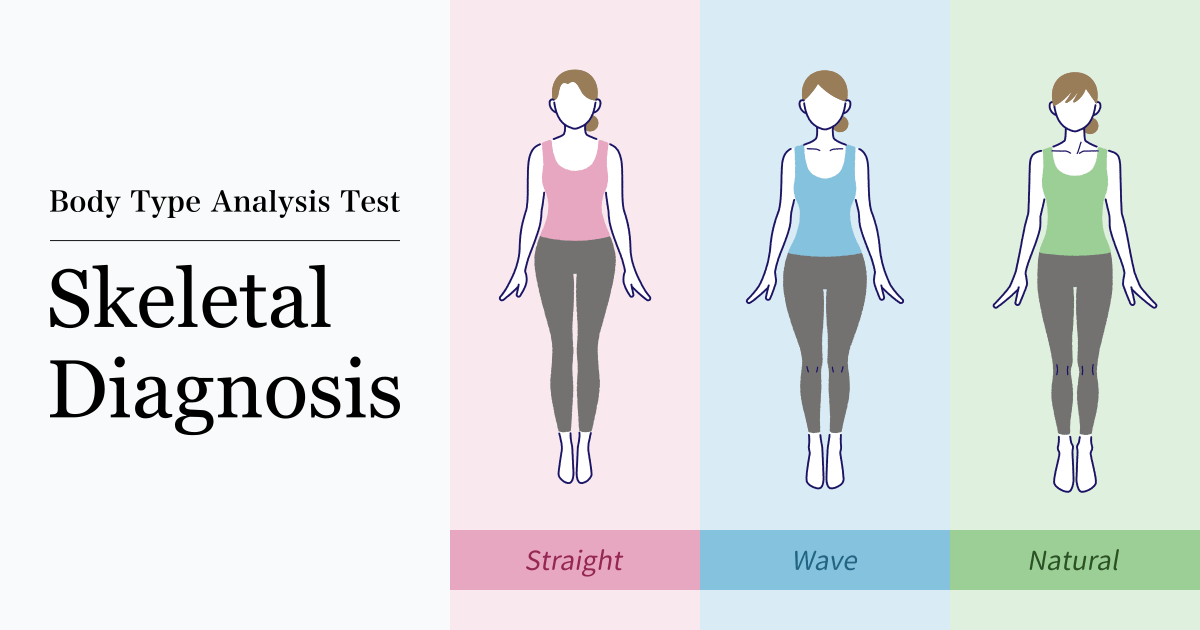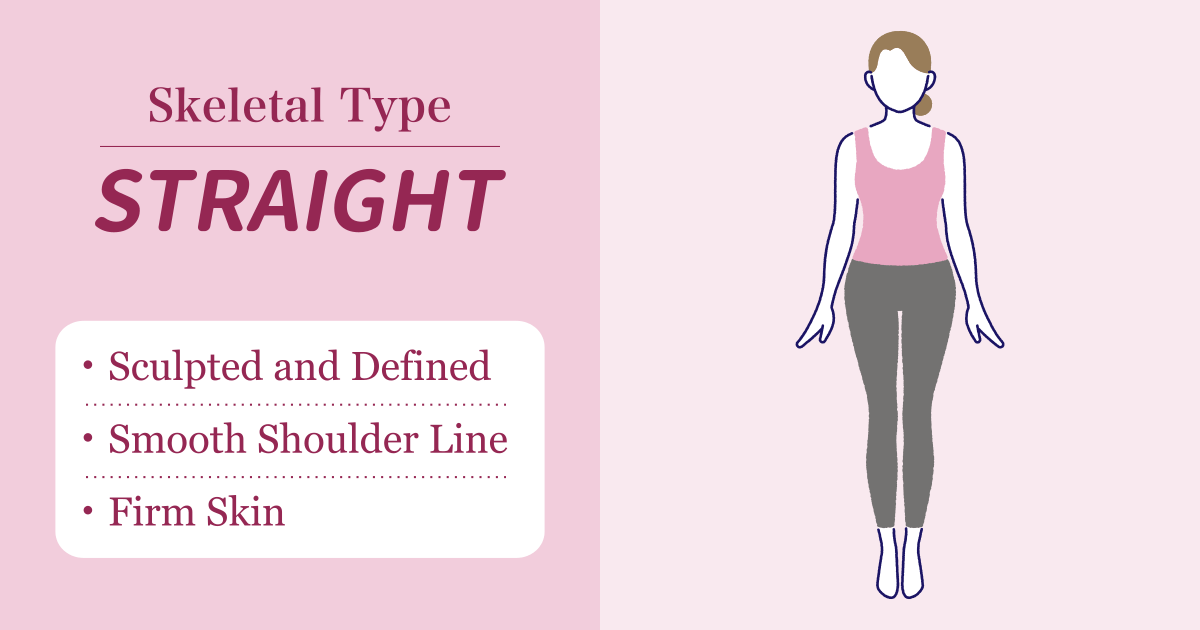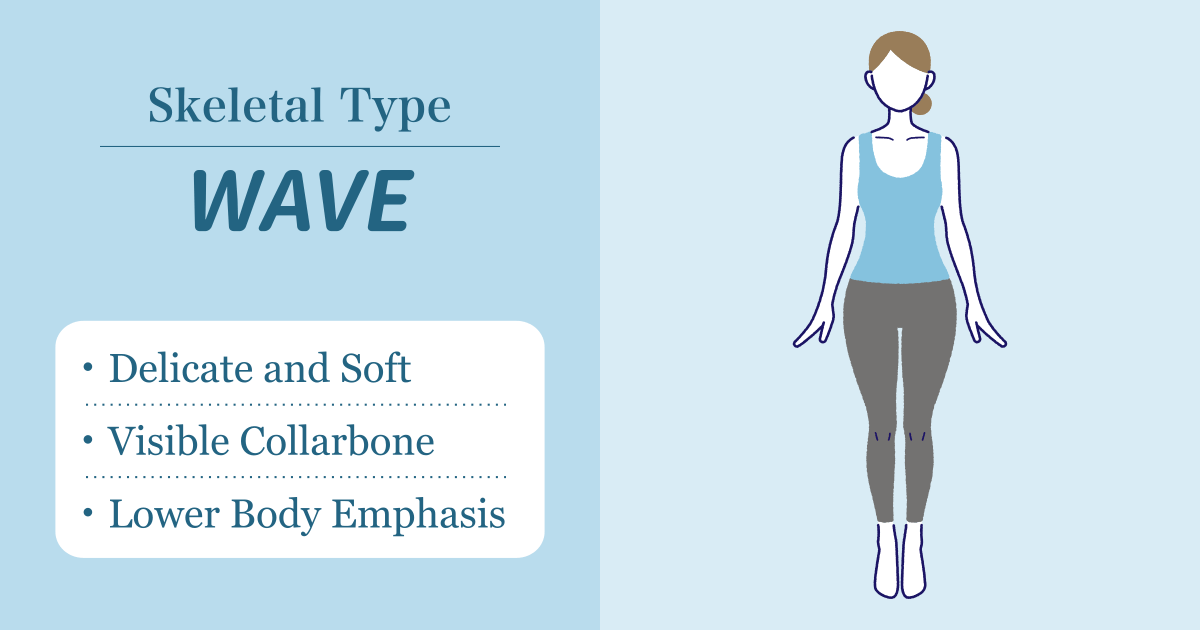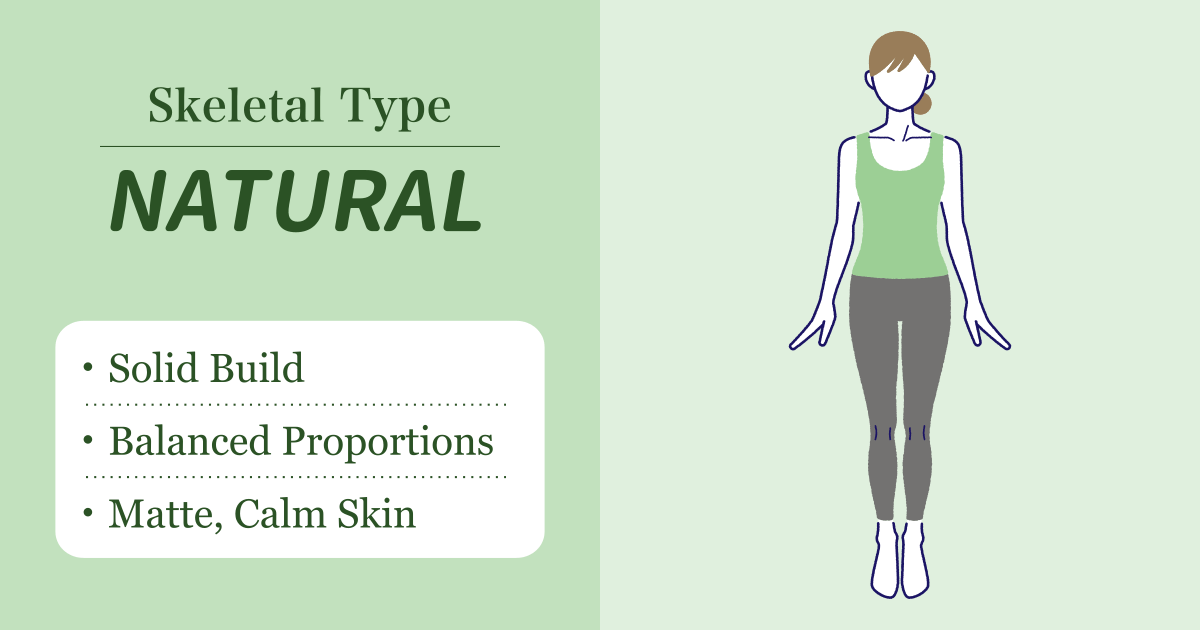
Skeletal Diagnosis categorizes body types based on bone structure and proportions, guiding you to understand your unique body type. Discovering your skeletal type can help you choose styles that highlight your natural features for a more flattering, personalized look.
Skeletal Diagnosis analyzes your body’s skeletal and proportional traits to categorize body types and identify flattering fashion styles. In Japan, types are typically divided into Straight, Wave, and Natural, each suited to different silhouettes and materials. This approach highlights your best lines, giving confidence and helping define a personal style. Alongside Seasonal Color Analysis, Skeletal Diagnosis is popular for enhancing one’s unique appeal, expanding fashion choices, and achieving balanced looks.

Straight: Sculpted body shape, upper body emphasis, broad shoulders, voluminous waist, firm skin. Simple, linear fashion suits this type; V-necks and fitted jackets enhance structure.

Wave: Delicate, soft lines, lower body emphasis, rounded shoulders, compact waist, voluminous hips/thighs. Soft materials and feminine designs like lace are ideal.

Natural: Strong, structured frame, balanced proportions, broader shoulders, and pronounced bone lines. Matte skin suits relaxed, casual styles and loose silhouettes.
Skeletal Diagnosis helps you choose clothes that enhance your natural build, creating attractive, balanced looks. Knowing your best silhouettes and styles reduces shopping stress and unnecessary expenses. Recognizing personal traits also boosts confidence, contributing to a comfortable, natural beauty aligned with lifestyle. It’s a valuable tool for self-improvement, making clothes more comfortable and enhancing overall appearance.
Skeletal Diagnosis and Seasonal Color Analysis both help identify flattering fashion, but with different focuses. Skeletal Diagnosis selects silhouettes and materials based on body traits, while Seasonal Color finds colors that match skin and eye tones. Combined, these approaches create harmonious, personalized styles.
For example, a Wave type with Warm Spring colors would ideally choose soft silhouettes in bright hues.
Together, these diagnoses enable a cohesive style reflecting individuality.